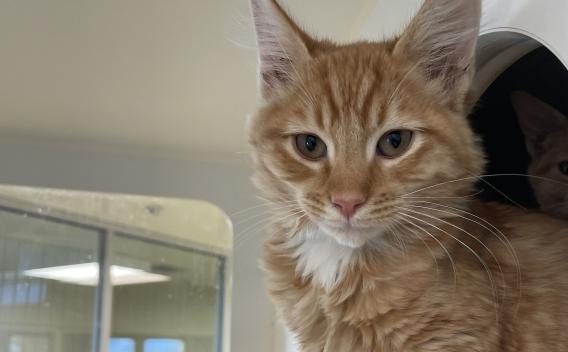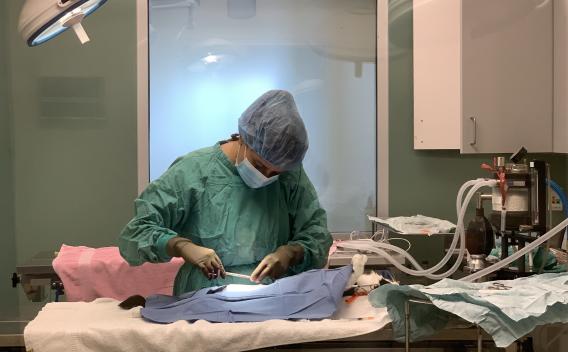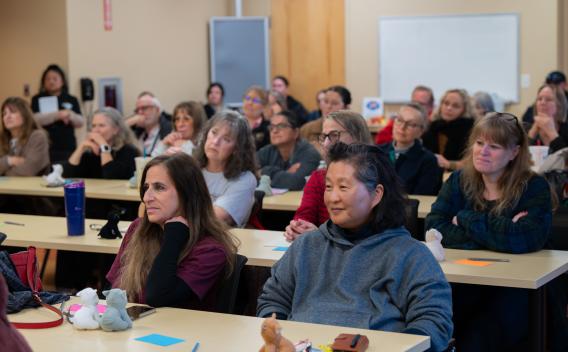Ways we are helping cats in our community
RCDAS supports free roaming cats through Trap-neuter-return services and does not impound healthy adult cats unless in need.
Most "stray" cats are actually a part of the community and do not have owners, the best thing that can be done for them is Trap-Neuter-Return. This ensures that the cat is spayed or neutered, vaccinated, and returned back to their outdoor "home" where they are looked after and cared for. Despite our efforts, an animal shelter is an extremely stressful place for cats, so returning to a place they know is far better for healthy outdoor cats.
Fewer than 2% of stray cats coming in to RCDAS are reclaimed by an owner. The main reason for this is that many cats are actually free roaming cats and don't have an indoor home. Kittens who are born to these community cats make up a very large part of our stray intake, so there is no one to come looking for them. There are some occasions where an owner of an indoor-outdoor cat does not come looking for the cat before they have been adopted out because they are used to their cat being gone for a few days at time.
For more information on not impounding healthy adult cats visit the National Animal Care and Control Association position statement here.
Trap Neuter Return Program
What is Trap, Neuter, Return?
Trap-Neuter-Return (TNR) refers to the process of humanely trapping and altering feral and stray cats to release them back to their outdoor home. This is typically performed on cats who are feral and would typically not be suitable for adoption. TNR services assist in the stabilization and eventually the reduction in population of stray and feral cats. The TNR program helps improve health conditions and reduce certain behaviors, such as fighting or yowling.
How Does TNR Work?
- TRAP- Volunteers or animal control officers use effective and humane traps that are designed to catch feral or stray cats without causing harm to the animals.
- NEUTER/SPAY- Cats are brought in their traps to be neutered, vaccinated and eartipped. Eartipping is the universal sign of an altered and vaccinated community cat.
- RETURN- After recovery, cats are returned to the area where they were originally trapped.
Have questions about TNR, or want to find out more about being part of a TNR day? Contact us at [email protected]
Image
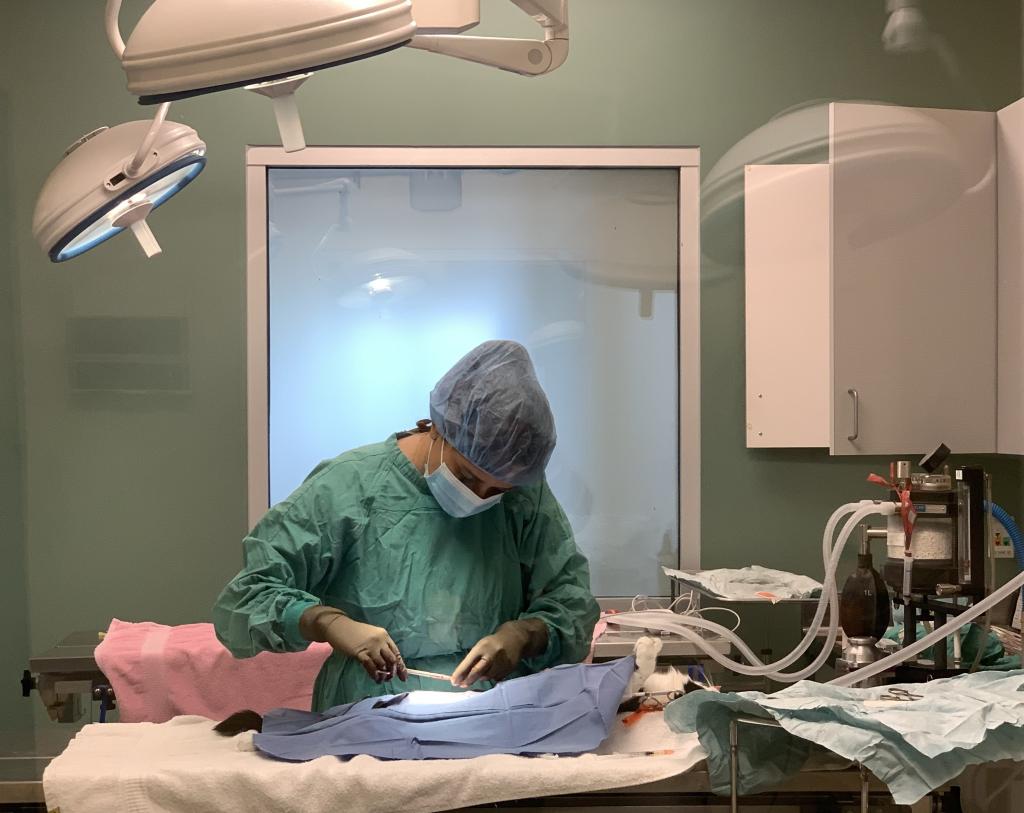
How can you help cats in your neighborhood?
Community cats, also known as feral cats, are unowned cats that live outdoors. Unlike indoor cats, they are generally not socialized to people and are therefore unadoptable. These cats form colonies and lead full, healthy lives in their outdoor homes. If you want to coexist harmoniously with community cats in your neighborhood, here are some helpful tips:
What can I do about nuisance cats?
If cats are causing issues in your yard there are actions you can take.
Having cats spayed or neutered reduces or eliminates many nuisance behaviors. Contact us for assistance with Trap-Neuter-Release services.
Talk to Your Neighbors: Engage with your neighbors to understand the presence of community cats. Determine whether a cat is a pet, stray, or feral.
Removing or preventing cats from accessing any potential food sources or other attractive elements is critical.
Secure Your Trash Cans: Cats may scavenge for food in trash cans. Make sure your trash cans have tight-fitting lids to prevent access.
Block Gaps in Sheds and Outbuildings: Seal any gaps or openings in the foundation of sheds, garages, or other structures. This prevents cats from seeking shelter in these spaces.
Consider Using a Car Cover: If you have a car parked outdoors, covering it with a car cover can prevent cats from seeking warmth or shelter underneath.
Setting up deterrents can help keep cats off of your property. These can include motion activated sound or sprinkler devices, scent repellents, garden deterrents, and more.
If you need assistance, please contact us by phone at 1-888-636-7387 (PETS) or by email at
Image
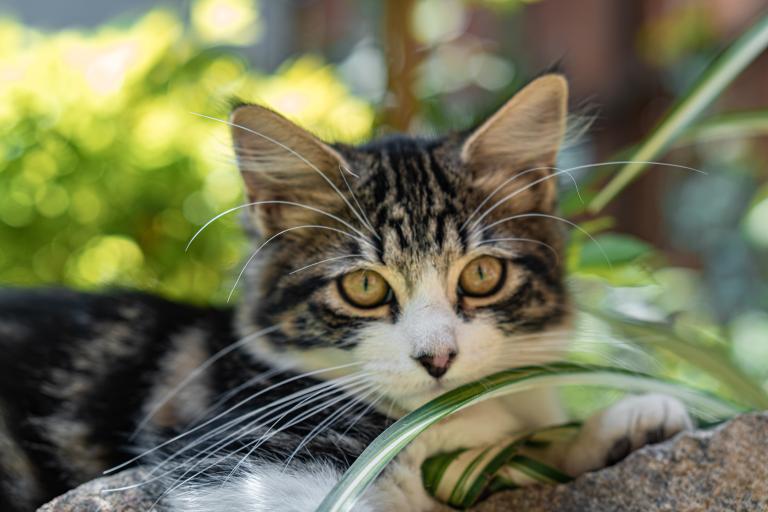
Kittens
What should I do when I find kittens?
If you find kittens outdoors, DO NOT pick them up and take them indoors. Their mother is probably close by.
It's best for kittens to stay with mom to nurse for a minimum of 6 weeks. Though we try, humans are not a substitute for the care a mother cat provides. You can help by offering shelter, food, and water until the kittens are 2 pounds, and then have them all spayed/neutered.
I Don’t See the Mother Cat
That doesn’t mean the kittens are abandoned or orphaned. Their mother may just be out looking for food. She might even be hiding from you. Check on kittens for several hours, staying out of sight, to see if their mother returns.
What if the Kittens are Sick?
Contact the shelter for help right away if the mother cat or kittens appear ill or injured. Shelter staff can provide resources to assist.
Image
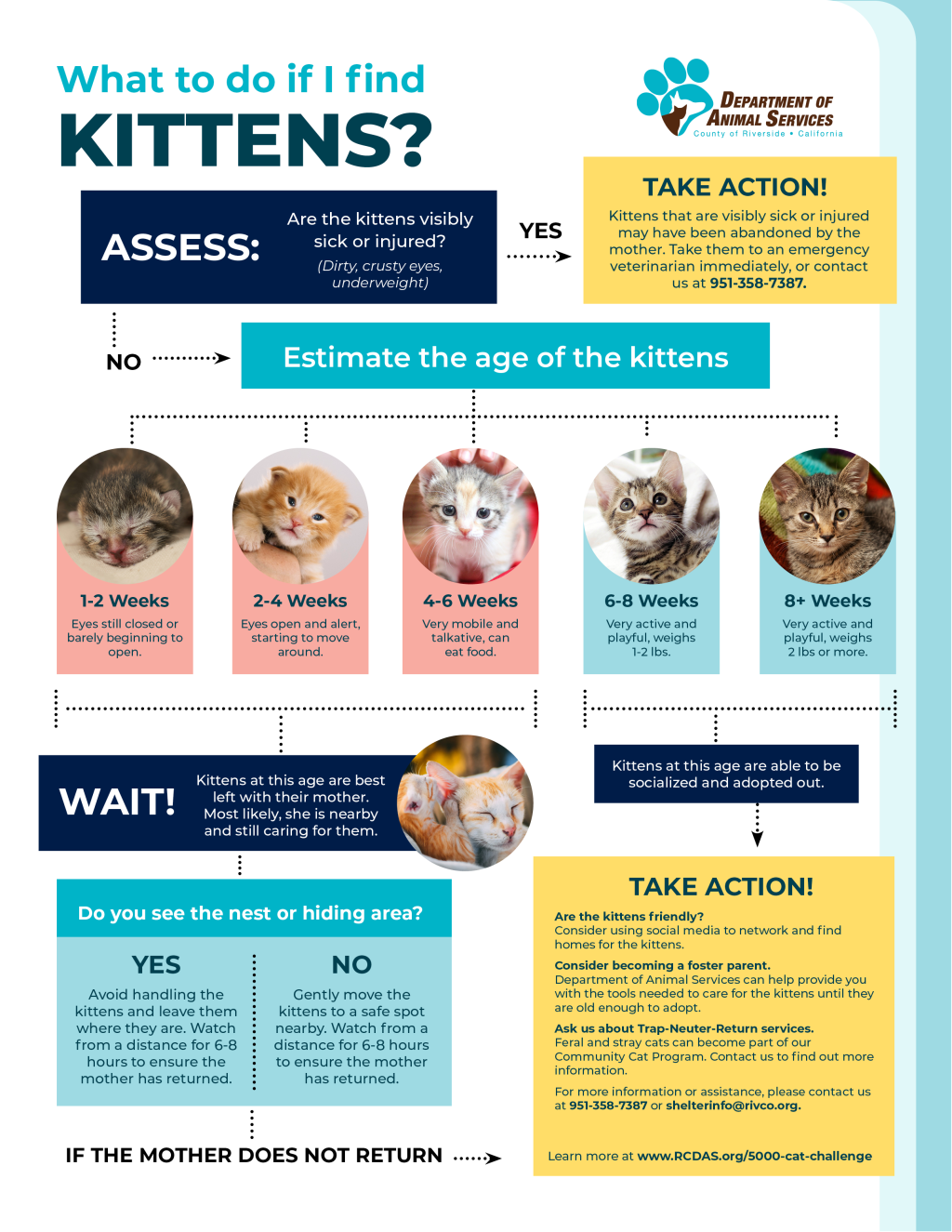
Do you want to help out the 5,000 Cat Challenge?
We appreciate the support of community members like you.
There are lots of ways to get involved! Learn more about opportunities to support the 5,000 Cat Challenge today.
For any questions, please email [email protected]
Become a Volunteer



